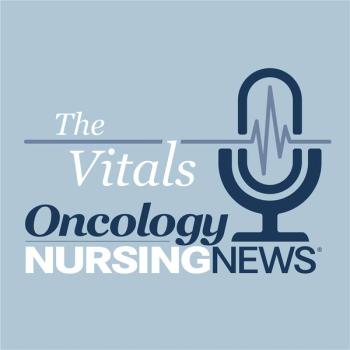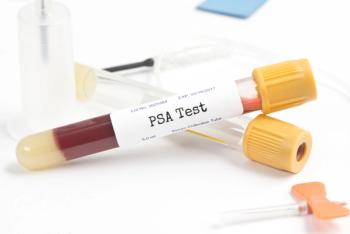
The FDA has granted priority review to the new drug application for the novel compound pafolacianine sodium injection for use in the identification of ovarian cancer during surgery.

The FDA has granted priority review to the new drug application for the novel compound pafolacianine sodium injection for use in the identification of ovarian cancer during surgery.

The FDA expanded the indication for lorlatinib to include the front-line treatment of patients with ALK-positive non–small cell lung cancer.

Baseline fatigue levels, prior psychosocial history, and cancer treatment may all affect the fatigue trajectory in women with breast cancer.

Minimal residual disease has helped to predict relapse in numerous leukemia subtypes, with novel testing methods helping to identify the biomarker at a higher sensitivity than ever before.

Although scientific advances in hematology and oncology have been extraordinary, the US health care system faces significant challenges in ensuring that patients receive high-quality, cost-effective care.

Certain patient characteristics correlated with a higher rate of fear of cancer recurrence.

Each month, we take a look back at the most popular Oncology Nursing News® stories. Here are the top 5 stories from February 2021.

This is the third COVID-19 vaccine to be granted emergency use authorization, and is the first single-dose vaccine.

The FDA approved melphalan flufenamide (Pepaxto; melflufen) plus dexamethasone for adults with triple-refractory multiple myeloma.

Up to 50% of patients with B-cell malignancies will relapse on CAR T-cell therapy. Investigators are looking in to new ways to overcome that drug resistance.

The FDA has granted a breakthrough therapy designation to tipifarnib for use in patients with recurrent or metastatic HRAS-mutated head and neck squamous cell carcinoma with variant allele frequency of 20% or higher following progressive disease on platinum-based chemotherapy.

The FDA has approved the PD-L1 IHC 22C3 pharmDx assay, developed by Agilent Technologies Inc, for expanded use in patients with non–small cell lung cancer.

While the majority of patients on androgen receptor therapy experienced adverse events, more than a third did not have them resolved.

Immunotherapy continues to improve upon the treatment of non-small cell lung cancer, and there are more exciting advancements on the horizon.

The FDA approved single-agent frontline cemiplimab-rwlc (Libtayo) for the treatment of patients with advanced non-small cell lung cancer (NSCLC) with a PD-L1 expression of 50% or greater.

The National Comprehensive Cancer Network has issued guidelines for the management of children with a rare type of kidney cancer referred to as Wilms Tumor, or nephroblastoma.

The use of next-generation sequencing demonstrated that 34% of patients with sarcoma had potentially actionable mutations.


Leading organizations, cancer centers, and other institutions sent a letter to President Joe Biden and his administration, as well as other leading public health officials at state health departments advocating for priority access to the COVID-19 vaccine for patients and survivors of cancer.

Parents of pediatric patients with cancer were more likely to believe COVID-19 misinformation than parents of children without cancer.

The FDA has accepted and granted a priority review designation to the biologics license application for Vicineum for use in patients with high-risk Bacillus Calmette-Guérin–unresponsive non–muscle invasive bladder cancer.

The FDA has granted priority review to sotorasib for the treatment of patients with KRAS G12C–mutated locally advanced or metastatic non–small cell lung cancer, after at least 1 previous systemic therapy.

Reductions in prostate-specific antigen screening are likely responsible for the recent increase in metastatic prostate cancer cases in the United States.

The FDA has approved trilaciclib to reduce the frequency of chemotherapy-induced bone marrow suppression in adults receiving certain types of chemotherapy for extensive-stage small cell lung cancer.

Ruxolitinib, when administered using a pediatric dosing algorithm, was found to elicit responses in patients with chronic graft-versus-host disease with acceptable safety.

The FDA approved cemiplimab-rwlc as the first immunotherapy for use in patients with advanced basal cell carcinoma that has previously been treated with a hedgehog pathway inhibitor (HHI) or for whom a HHI is not appropriate.

“We should never be complacent; we should never be skeptical,” said Lilenbaum. “We need to continue to pursue new treatments, and if nothing else, the past 2 decades are a testament to how we can actually make a difference in the natural history of the disease by appropriate interventions.”

Pembrolizumab (Keytruda) combined with ipilimumab (Yervoy) did not improve survival and had higher rates of toxicity compared with pembrolizumab monotherapy as a first-line treatment for patients with metastatic non–small cell lung cancer (NSCLC) who had a PD-L1 tumor proportion score (TPS) of 50% or greater, and did not harbor EGFR or ALK aberrations.

Health-related quality of life was maintained for patients with EGFR-positive non–small cell lung cancer who received treatment with adjuvant osimertinib.

The FDA approved umbralisib for the treatment of adults with relapsed/refractory marginal zone lymphoma and adults with relapsed/refractory follicular lymphoma.